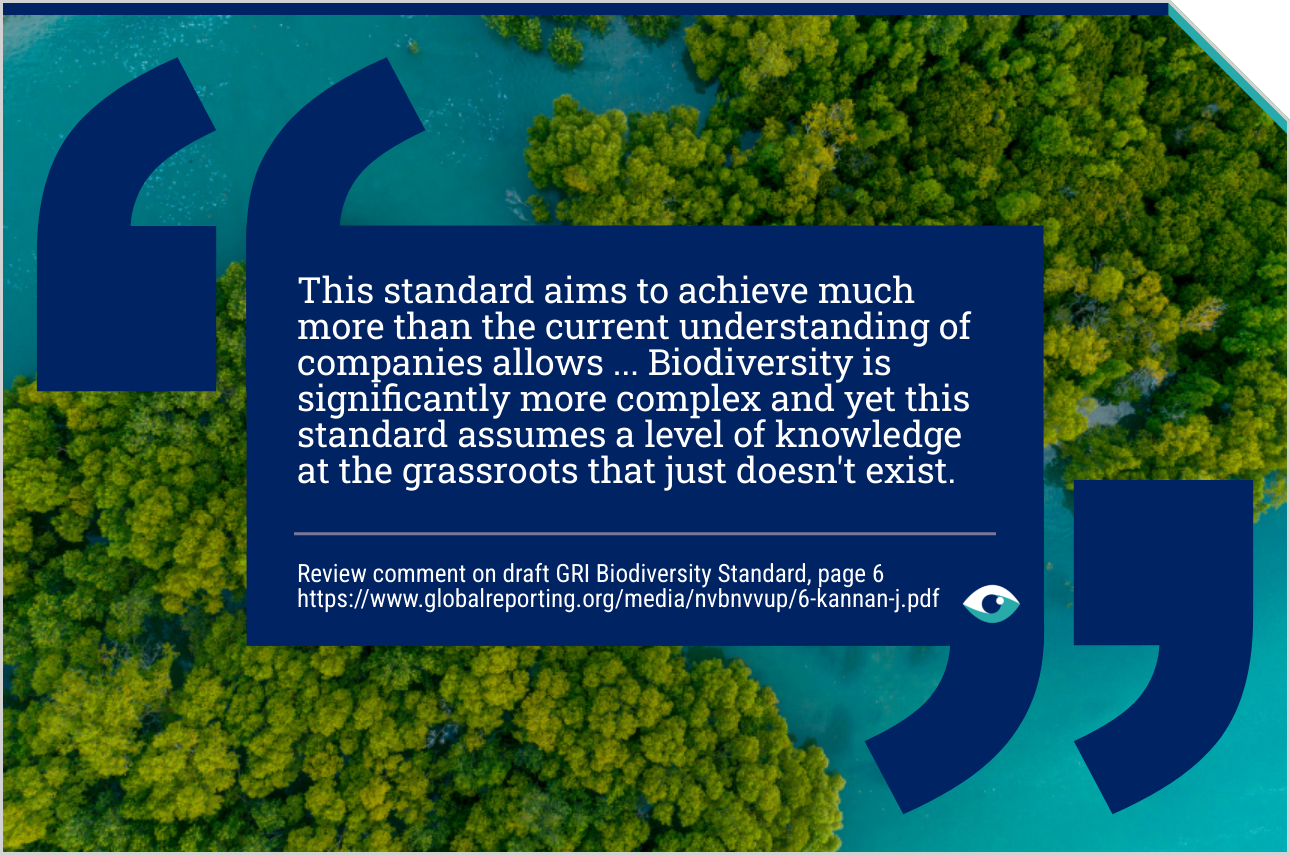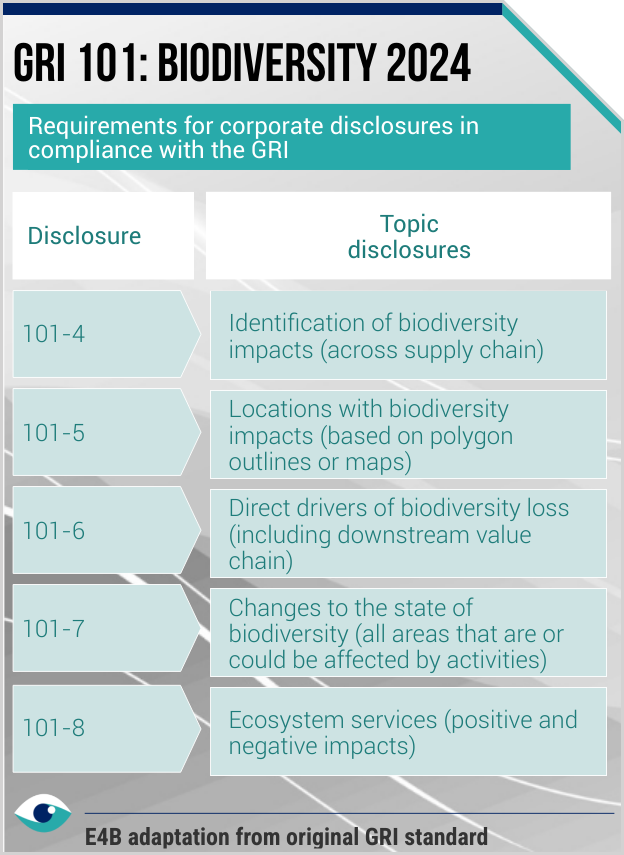The GRI biodiversity standard is recognised as a vital tool for addressing biodiversity loss, influencing ecosystems, businesses and societal well-being. Earlier this year, GRI updated its biodiversity standard, aligning it with the Kunming-Montreal Global Biodiversity Framework. Despite its significance, businesses face uncertainty managing biodiversity across complex supply chains, struggling to measure their biodiversity footprint and lacking motivation to act beyond compliance. Entities in all industries should prepare to go beyond social legitimacy and external recognition of their current efforts and advocate for a more effective reporting system.

Challenges abound for biodiversity accountability by firms
Technical complexity and limits to the overall impact of corporate sustainability hamper efforts to meaningfully measure biodiversity
Policy
Global (all industries)
Publication date: 27 Sep 2024
By Craig Otter
AT A GLANCE
The inability to measure biodiversity impact across complex supply chains creates significant risks for businesses adhering to GRI biodiversity standards.
This is critical because indirect impacts are often unreported, undermining accountability.
In the future, poor transparency and failure to adopt extinction accounting may lead to severe operational risks.
Supply chain transparency
Improving supply chain transparency is essential for addressing biodiversity loss as current reporting gaps hinder businesses from fully assessing their impact on species extinction and ecosystem degradation. The GRI biodiversity standard focuses on direct operations and immediate supply chains but many businesses have complex, multi-layered supply chains where biodiversity impacts are indirect and difficult to quantify. These indirect impacts remain underreported, obstructing a complete understanding of biodiversity risks.
Extinction accounting
Extinction accounting provides a structured method for businesses to address biodiversity loss, offering a way to measure and mitigate environmental impact. It links stronger protection measures to corporate responsibility. This expanded approach helps businesses proactively manage biodiversity risks, reducing disruptions in operations and supply chains.

Advocating stronger reporting
Advocacy for stronger biodiversity reporting standards is critical where local communities and indigenous groups, despite their essential role in conservation, are often excluded from current frameworks. The GRI biodiversity standard helps identify biodiversity impacts across value chains but lacks full integration of local stakeholders’ perspectives. The UN 2030 Agenda stresses urgent action, particularly to protect marine and terrestrial ecosystems in the Global South.

Biodiversity accountability
Achieving full biodiversity accountability may require businesses to implement models like extinction accounting, and–more controversially given the entrenched notion of profitmaking–“degrowth”, alongside enhanced reporting standards. More realistically, firms could start to establish a baseline for measuring natural capital and progressively align operations with global conservation goals. Although biodiversity-related regulation will lag behind carbon pricing in the short-term, and considerable knowledge gaps exist, there is an opportunity for firms to enhance market reputation through a proactive corporate response.
FURTHER READING
- GRI 101: Biodiversity 2024 (Global Reporting Initiative)
- Corporate commitment to biodiversity (Journal of Cleaner Production)
- Impression management of biodiversity reporting (Behavioral and Experimental Finance)
